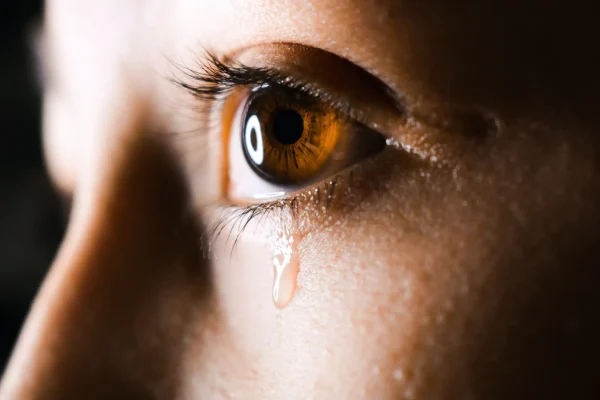The Healing Journey Requires Complete & Honest Forgiveness
Take a moment and think about the word, “forgiveness”. What emotions do you experience when you realize you have been forgiven? “Forgiveness”, what a wonderful word it is! How healing it is! How freeing it is! Healing through forgiveness is a powerful growing experience. Yet forgiveness has two sides to it. Forgiveness has a double edge.
Healing Through Forgiveness & It's Double Edge
 Remove the ending of the word “forgiveness”, and you are left with, “forgive”. Now suddenly you are on the other side of mercy. Your emotions change as you contemplate whether, or not, you are willing to let go of all the hurts you have held onto for years.
Remove the ending of the word “forgiveness”, and you are left with, “forgive”. Now suddenly you are on the other side of mercy. Your emotions change as you contemplate whether, or not, you are willing to let go of all the hurts you have held onto for years.
Intense feelings rise-up and restrict your throat and possibly your breathing. Fear, anger, and rage fill your entire being. FORGIVE? How dare anyone suggest such a thing! Why should I forgive someone so vile? Healing through forgiveness may involve asking yourself, “Who am I really hurting, when I choose not to forgive?”
Healing Through Forgiveness & The Cost
 The cost of forgiveness is high, but the cost of not forgiving is even higher. You will never reach your full potential spiritually, emotionally, mentally, intellectually, or productively, if you are enslaved by bitterness.
The cost of forgiveness is high, but the cost of not forgiving is even higher. You will never reach your full potential spiritually, emotionally, mentally, intellectually, or productively, if you are enslaved by bitterness.
Forgiveness, although very painful, is a vital ingredient to healing and is much preferred to the alternative. To refuse to forgive and choose to nurture bitterness toward my offender is simply poisoning myself, mentally, emotionally, spiritually, and eventually physically.
Bitterness affects our mental health. We lose sleep; we lose our appetite; we become anxious, fearful, depressed, and paranoid. We also develop all kinds of health issues. It has been scientifically proven that bottled-up bitterness causes depression, digestive disorders, organ dysfunctions, high blood pressure, heart attacks, strokes, and even cancer.
Unforgiveness Affects Our Relationships
Until we have healed and have forgiven our offender, we will continually encounter individuals who remind us of someone who has hurt us in the past. We will most likely have difficulty getting along with people who have the same personality traits as the one who previously hurt us.
How do you know if unforgiveness is interfering with your present relationships? Do you find you keep running into people who irritate you; people you just don’t like or can’t work with; people who always seem to bring out the worst in you? Intense emotions will constantly be triggered by present situations, that parallel the old wound. You will find yourself reliving the pain of past wounds repeatedly.
You can be sure that no matter how many times you change jobs, acquaintances, or home address, you will end up having to relate to the same kind of personality in another situation. He or she will have a different name, different face, and different shape, but the same character traits.
Healing through forgiveness sets you free to live your life and enjoy your present relationships. You will no longer be overshadowed by old messages, memories, emotions, or triggers. You can lose the old labels and become who God created you to be.
Healing Through Forgiveness & The Obstavles to Forgiveness
Pride prevents hurting individuals from admitting they have been hurt. They would not want the offender to have the pleasure of knowing the hurtful words hit their mark. Pride keeps the wounded person bound in emotional pain.
How often do we replay the incident over in our minds mumbling to ourselves about what we should have said or done when someone has hurt us? “I should have said this, or I should have done that.” We often come up with brilliant responses, hours, or days after the confrontation.
Pride and fear often get in the way of forgiving. Forgiving requires laying down our pride of who was right and who was wrong. It also involves overcoming the fear of being hurt again. Healing through forgiveness entails letting go of the pain caused by you, and allowing God to deal with the one who hurt you.
Unforgiveness Undermines Spirtual Growth
Unforgiveness weakens our relationship with our Heavenly Father. Our desire for worship and fellowship will be diminished. Matthew 6:14-15 tells us we must forgive others if we want our sins to be forgiven. Bitterness leaves a door open for Satan to interfere in our lives, whether it be through health issues, financial setbacks, or in powerful temptations.
Unforgiveness is comparable to unbelief. Unbelief is our rejection of Jesus’ blood that was shed to pay for our sins. Unforgiveness is the rejection of Jesus’ blood to pay for the sins of those who have hurt us. Our Heavenly Father knows more than anyone, the cost of forgiveness. Forgiveness for our sins, as well as the sins of others against us, cost God the Father, the death of His Son, Jesus. Our refusal to forgive would be an insult to the sacrifice of Jesus’ life.
The High Cost of Forgiveness
Why is it so difficult to forgive? What prevents you from forgiving the one who hurt you so badly? We think of forgiving our offender as high risk; it could be costly. We are afraid that if we forgive too quickly, we will endure the same hurt again. What if this offense followed by forgiving becomes a pattern?
We struggle with forgiving those who have hurt us, because we think to forgive means to say, “I am over the pain”. Or we think to forgive means, “to let them off the hook; to let them away with it”. We want them to suffer as much as we have. We want to make sure our offender is punished sufficiently before we let him off the hook. You rationalize that your offender doesn’t deserve your forgiveness. He hasn’t come to you and begged for mercy. Crucial to healing through forgiveness is the understanding of what it means to genuinely forgive and what it does not.
Healing Through Forgiveness & What Forgiveness is Not
- Forgiveness is not just ignoring or burying the pain.
- Forgiveness is not forgetting the hurtful incident.
- Forgiveness is not declaring the other person was right or what he did was ok.
- Forgiveness is not letting the offender away with it.
- Forgiveness is not allowing the offender to control your life.
- Forgiveness is not saying you are over the pain.
- Forgiveness does not mean your offender should not have to pay the consequences of his or her actions. If a crime has been committed, the offender should answer to the laws of the land. But you can still forgive.
What Forgiveness Is
- Forgiveness is more for your benefit than for the benefit of your offender.
- Forgiveness means you are more interested in understanding where your offender is coming from, than in getting even.
- Forgiveness means you are more concerned about moving ahead with your life than being controlled or restricted by your past.
- Forgiveness affirms that your offender no longer owes you anything.
- Forgiveness sets you free to move through the healing process.
- Forgiveness opens the door for God’s blessing on your life.
Healing through forgiveness is God’s idea. Forgiveness, although extremely difficult, is essential to emotional wellbeing.
Give The Gift of Forgiveness
 Now remove the first part of the word, “forgive” and you are left with “give”. The word, “give” means “free gift.” In giving a free gift, you expect nothing in return. A gift can’t be earned or paid for. It is an expression of love, compassion, and mercy.
Now remove the first part of the word, “forgive” and you are left with “give”. The word, “give” means “free gift.” In giving a free gift, you expect nothing in return. A gift can’t be earned or paid for. It is an expression of love, compassion, and mercy.
Forgiving someone who has hurt us is hard work. It doesn’t come naturally. In fact, everything in our shouting, “FIGHT BACK! GET EVEN! RETALIATE!” we say, “He must pay for the pain he has caused me” or “Pain must be paid for.” Yes, someone must pay. Yes, pain must be paid for, and someone has paid. Someone has paid for my pain and your pain with His very life. His name is Jesus.
We are never more like our Heavenly Father than when we extend mercy to someone who could never repay us for the mountain of emotional pain he or she has caused. God loves us so very much that He gave— His only Son… (John 3:16)
In healing through forgiveness, we can trust that God will give us the grace to forgive. If we will commit to doing His will, He will give us the strength to do what we could never do on our own. Give the whole situation to God and let Him handle it. He has said, “Vengeance is Mine; I will repay.”
God has your back, He’s on your side. God wants what’s best for you. He wants you to live a victorious life, free from baggage. He knows that as long as you hold on to bitterness, you will struggle with one setback after another. Maybe not immediately but it will eventually take its toll.
Forgiveness is a Continual Experience
So, we say, “Ok, I forgive”, but what do we do with the memories? What do we do when the old feelings of hurt come back? Most commonly we tend to handle our forgiven painful experiences in one of two ways. We push down our memories and emotions and say we have forgiven our offender. Or we replay the scenario in our minds repeatedly until the old emotions of anger and bitterness return. As a result, we must work through the process of forgiving again.
But there is a better way of processing memories of forgiven hurts. We can go to our Heavenly Father and tell Him the whole story. Tell Him how the infraction hurt us. Acknowledge our pain by pouring out all our emotions. Tell Him what our losses are. He or she stole my reputation, my promotion; my marriage… you fill in the blank. What does he or she owe you? ______________ Now thank Jesus for paying the debt in full.
Pray for a blessing upon the one who hurt you. Ask your Heavenly Father to heal you, and then rest in His presence while He brings about healing to your broken heart. You should repeat this process every time you feel the old wound returning.
Healing through forgiveness is an unending growing experience in which we never seem to arrive. There is no such thing as graduating from forgiveness college. Just when we think we have the course of action down pat; we get thrown another offense and we must start working through our emotions again. Every hurt requires its own healing process.
Healing through forgiveness was God’s idea, can there be a more beautiful plan? Forgiveness changes and stimulates growth in both the granting and in the receiving of the same. Forgiveness springs freedom. We [have] escaped like a bird from a hunter’s trap. The trap is broken, and we are free! (Psalms 124:7 NLT) So if the Son sets you free, you will be free indeed (John 8:36 NIV).
Grace Gayle at Healing Our Brokenness Ministries
My Books
Check out my books. We offer both paperback and Kindle versions.

Restoring Harmony in the Marriage Relationship
Do you want to restore harmony in your marriage .

How to Balance Career and Family Life
How to balance career and family life is a challenge that every loving father struggles with and learning to stretch your minutes makes the time you spend with your family seem like more. The secret to stretching your minutes is to use your time wisely.

The Most Common Complaints in Relationships
Some couples spend more time arguing than they do conversing in peaceful tones. A good starting place in rebuilding the marriage relationship is in understanding why couples fight and why they can’t agree. The following list contains 12 most common Complaints couples.

